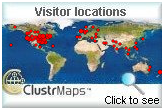This is Part 2 of a Dialogue with Ben Grey and Respondents. Please read the previous post on this blog if you have not done so as well as Mr. Gray's Blog and the comments to his post Why Technology?: that is under discussion here.
So let's get back to the important question: What do we want our students to know, be able to do and have experienced. In other words, what are our objectives.
Let's start with CONTENT, what we want them to know.
Mr. William Chamberlain responded to Mr. Grey in this way:
"I used to believe that 'Content is King' and prided myself in trying to get as much material covered as possible. Now I realize that content is ubiquitous, what we do with it is much more important."
My argument is similar. Specific content should not be the objective of schools, although content specialists think that THEIR content is THE content that students should know. No, content is the context in which our primary objectives must be conducted. The choice of which content cannot be universally mandated. It must be chosen and I will include the ability to choose content wisely later in this post.
If specific CONTENT is eliminated from our list of objectives, then we are faced with the question of what content do we use for the context in which desired skills are to be demonstrated. I would argue that we use the content which is the most likely to be a successful context for learning the desired skills. Some possibilities include: the learner's previously known content; the learner's content in which they have demonstrated an interest or even a "passion"; the content of the teacher when the teacher can contentedly share their content with non-specialists as they learn; the content which a teacher can use to excite and engage learners; a community agreed upon content. And there are others. But I would hope that the learner would play a major role in the selection of the content. I think it works better that way!
There must be many contents for context. One of our objectives would surely be the ability to transfer skills across content areas, or contexts. This implies multiple contexts.
So what are the SKILLS we seek to teach or develop in our students? I would add that my list spills over into ATTITUDES.
1. One would be to be able to make choices about content in which to demonstrate skills. Mr. Peter Papas puts it this way in a response to the post by Ben Gray under discussion: "Shouldn't our students have access to the technologies that allow them to create, collaborate and share their thinking on subjects that matter to them?" (my emphasis)
2. To be able to exhibit skills in a variety of content content contexts, even those in which there is little or no interest
3. To be able to identify
4. To be able to collect information
5. To be able to classify information
6. To be able to describe
7. To be able to compare
8. To be able to contrast
9. To be able to make an argument
10. To be able to effectively argue against the argument we have proposed
11. To be creative
12. To be curious, that is to value questions
13. To consider questions more important than answers
14.To see answers as preliminary steps to more questions
15.To communicate effectively using the cultural tools that are prevalent in the society in which the student operates. In our current culture the hierarchy is video, audio, kinetics, written text. A warning: don't overemphasize writing even though that may be our cultural norm
16. To make contributions to the content of a listening/watching world rather than to just be a consumer. In other words, we want our students to create products in video, audio, pictures, graphics and internet delivered text. Or, to add to the information pool soon to be available in "all places at all times." (Gutenberg II, 1978)
17. To effectively reflect upon their own learning and to make adjustments as appropriate
18. to be able to evaluate their own as well as what remains unknown
And now, what do we want our students to EXPERIENCE? I use this word because there are many things we do in school which are experiences that we want to have an impact later. An example: an art appreciation course or a music appreciation course. Appreciation is even in the title! So what do we mean? I used to say in speeches that I gave that we wanted to increase the chance that our students, if in Washington, would go to the National Gallery or the Phillips Gallery rather than visit 14th street (then the red light district. I don't know whether it is still there now - but it is somewhere in Washington).
It seems to me that we must START our answer to this question with TECHNOLOGY.
Peter Papas says that our students "have the right to participate in the digital age." Absolutely. Maybe I should say ABSOLUTELY! The ability to have access to and make use of technology will determine to whom the rewards and benefits will be distributed. In fact, that is already happening.
You will have your own lists. But we must make the case for what we want our students to learn: what we want them to know, be able to do and have experienced.
If we do that, the tool of technology will be widely, and I hope, well used.
Friday, May 8, 2009
Subscribe to:
Post Comments (Atom)



No comments:
Post a Comment